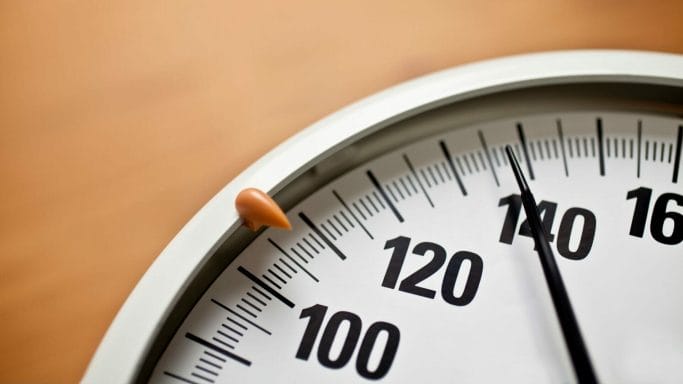
Table of Contents
In our quest for a healthier lifestyle and weight loss, many of us adopt a well-balanced diet and engage in regular exercise. But sometimes, despite our best efforts, we find ourselves having weight gain instead of shedding those extra pounds. It can be discouraging and confusing, but it’s important to realize that weight gain and loss is a complex process influenced by numerous factors. In this article, we’ll explore several possible reasons why you might be gaining weight even while eating healthier and working out, despite your goal being to lose weight.
Hidden Calorie Intake:
One common pitfall when striving for weight loss is underestimating the caloric content of certain foods and beverages. You might be surprised to learn that seemingly healthy foods like nuts, avocados, and olive oil can be high in calories. Additionally, condiments, salad dressings, and beverages such as fruit juices and smoothies often contain hidden sugars and excess calories. To overcome this challenge, it’s crucial to practice mindful eating, read nutritional labels, track portion sizes, and be cautious with condiments and beverages. By making small changes and being mindful of hidden calorie sources, you can effectively manage your caloric intake and create the necessary calorie deficit for weight loss.
Muscle Gain:
Regular exercise, especially strength training, can lead to an increase in lean muscle mass. The interesting thing is that muscle weighs more than fat per square unit since muscle is denser than fat, resulting in a leaner appearance. This means that while you might not see the numbers on the scale going down, you could be losing fat and gaining muscle at the same time. Instead of relying solely on weight as a measure of success, it’s important to track body composition changes.
Consider measuring progress through tracking measurements, noticing improvements in clothing fit, and taking progress photos. For a more comprehensive view of your progress, we offer the InBody Composition Analysis at Progressive Health & Performance. This assessment provides precise data on your muscle mass, body fat percentage, and water distribution, enabling informed adjustments to your training and nutrition plans.
Fluid Retention:
Changes in your diet and exercise routines can affect fluid balance in your body. When transitioning to a healthier eating pattern, you may increase your consumption of whole grains and fiber-rich foods, which can cause temporary water retention as your body adjusts to the increased fiber intake. Additionally, intense workouts can lead to inflammation and fluid retention in the muscles. These fluctuations in fluid balance can manifest as weight gain on the scale, even if you’re making progress. So don’t get disheartened by these temporary fluctuations, as they are not reflective of fat gain. Focus on the overall trend and how you feel rather than fixating on day-to-day changes.
Stress and Hormonal Factors:
Stress, both physical and psychological, can significantly impact weight management. When you’re under stress, your body releases cortisol, a hormone that can contribute to weight gain, particularly around the abdominal area. Furthermore, hormonal imbalances, such as an underactive thyroid or polycystic ovary syndrome (PCOS), can disrupt your metabolism and make weight loss more challenging. If you suspect any underlying hormonal issues, it’s important to consult a healthcare professional for a comprehensive evaluation. Addressing these factors is crucial for sustainable weight management.
Inconsistent or Inefficient Workouts:
Exercise plays a vital role in overall health and weight management, but the type, intensity, and duration of your workouts can influence your results. If your exercise routine lacks variety, your body may become more efficient and burn fewer calories over time. Inconsistency in your workout patterns can also impede progress. To optimize weight loss, consider incorporating a combination of cardiovascular exercises, strength training, and high-intensity interval training
If you’re interested in learning more about how to avoid weight gain, take a look at what the CDC has to say about preventing weight gain! Click here to read!
IMPORTANT TAKEAWAYS:
- Get details – Weight on the scale only tells you so much. Find out where the weight is coming from.
- Trust the process – Time and consistency have to both be in play for this to really work.
- Consider a professional – This is complex. If you struggling, partner with someone who can get you over the hump and save you time, energy, and frustration.
What we can do for you here at Progressive Health and Performance
At Progressive Health and Performance, we understand the frustration and challenges that individuals face when their fitness efforts fail to yield the desired results. We understand weight gain, proper nutrition, and what type of exercises to incorporate can be tricky topics to understand. Our expert team is dedicated to helping you overcome these hurdles and achieve your fitness goals. Through our personalized approach, we carefully assess your current fitness level, nutritional habits, and lifestyle factors to identify potential barriers to progress. We then create tailored fitness and nutrition plans designed to optimize your results!
With our guidance and support, you’ll gain a deeper understanding of the intricacies of your body and how to make the necessary adjustments to overcome plateaus. Whether it’s addressing hidden calorie sources, optimizing workout routines, or managing stress and hormonal factors, we provide the tools and knowledge you need to break through barriers and achieve sustainable fitness success.
Trust Progressive Health and Performance to guide you on your journey to a healthier, fitter you.
Book a FREE consultation to talk with us today! CLICK HERE!
